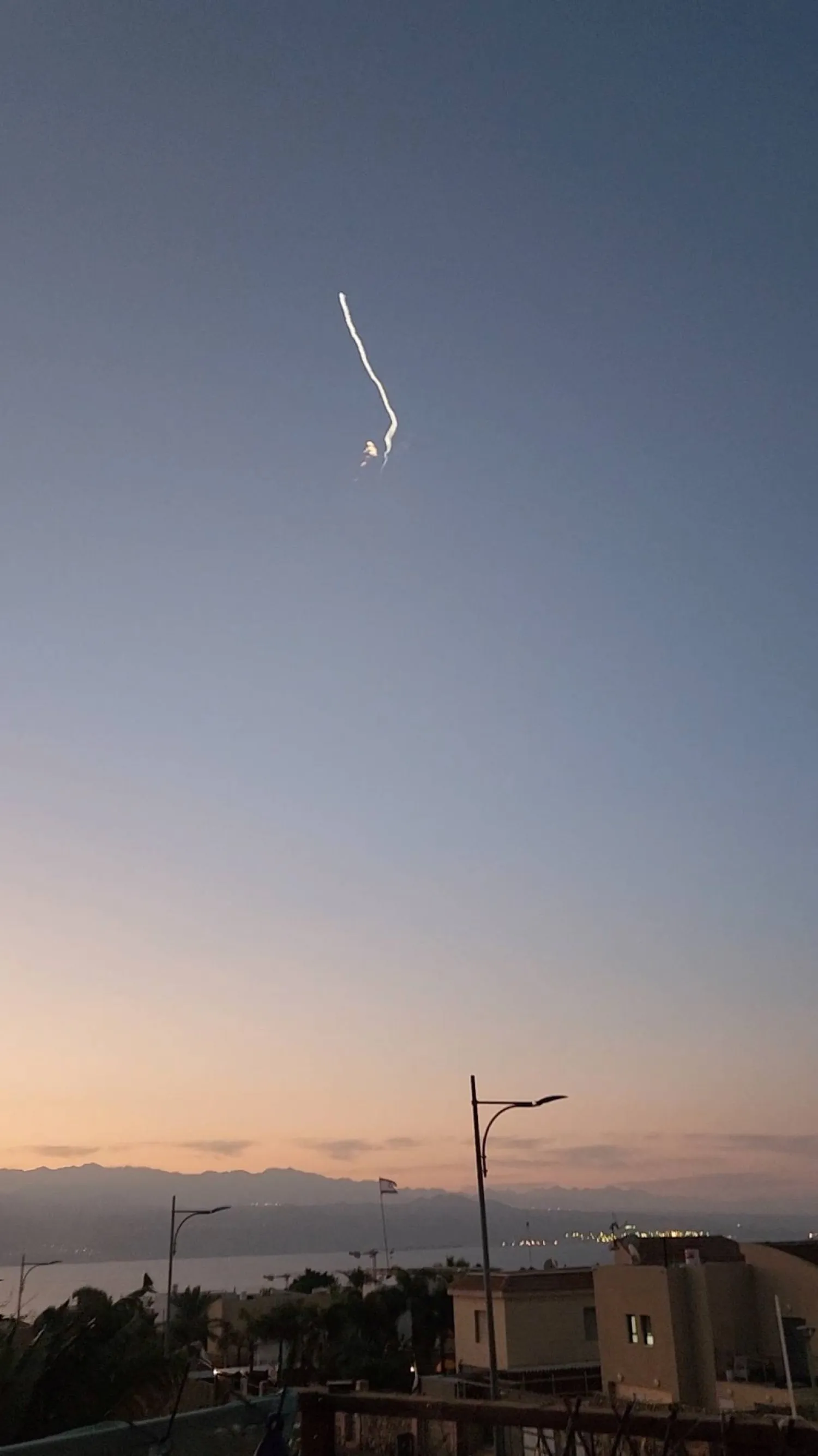Israel intercepted what appeared to be an attack launched by Yemen's Houthi militias Thursday near the port city of Eilat as the group escalates its assaults over Israel's war against Hamas in the Gaza Strip, authorities said.
Sirens sounded early Thursday morning over Eilat, followed by videos posted online of what appeared to be an interception in the sky overhead.
The Israeli military later described the interception as being carried out by its Arrow missile defense system.
Israel did not identify what the fire was, nor where it came from. However, the Arrow system intercepts long-range ballistic missiles with a warhead designed to destroy targets while they are in space.
The system “successfully intercepted a launch which was identified in the area of the Red Sea and was en route to Israel,” the Israeli military said. “The target did not cross into Israeli territory and did not pose a threat to civilians.”
Eilat, on the Red Sea, is a key port city of Israel. On Oct. 31, the Houthis first claimed a missile-and-drone barrage targeting the city. The militias have claimed other attacks targeting Eilat, which have caused no damage in the city.
Since November, the Houthis have repeatedly targeted ships in the Red Sea and surrounding waters over Israel’s war against Hamas in the Gaza Strip. They have frequently targeted vessels with tenuous or no clear links to Israel, imperiling shipping in a key route for trade among Asia, the Mideast and Europe.
Israel Intercepts Apparent Houthi Attack Near Eilat

A trail of white smoke in the air from what the Israeli military said was an intercepted target is pictured in Eilat, Israel February 22, 2024, in this screengrab taken from a social media video. Ronit Zilberstein/via REUTERS

Israel Intercepts Apparent Houthi Attack Near Eilat

A trail of white smoke in the air from what the Israeli military said was an intercepted target is pictured in Eilat, Israel February 22, 2024, in this screengrab taken from a social media video. Ronit Zilberstein/via REUTERS
لم تشترك بعد
انشئ حساباً خاصاً بك لتحصل على أخبار مخصصة لك ولتتمتع بخاصية حفظ المقالات وتتلقى نشراتنا البريدية المتنوعة







